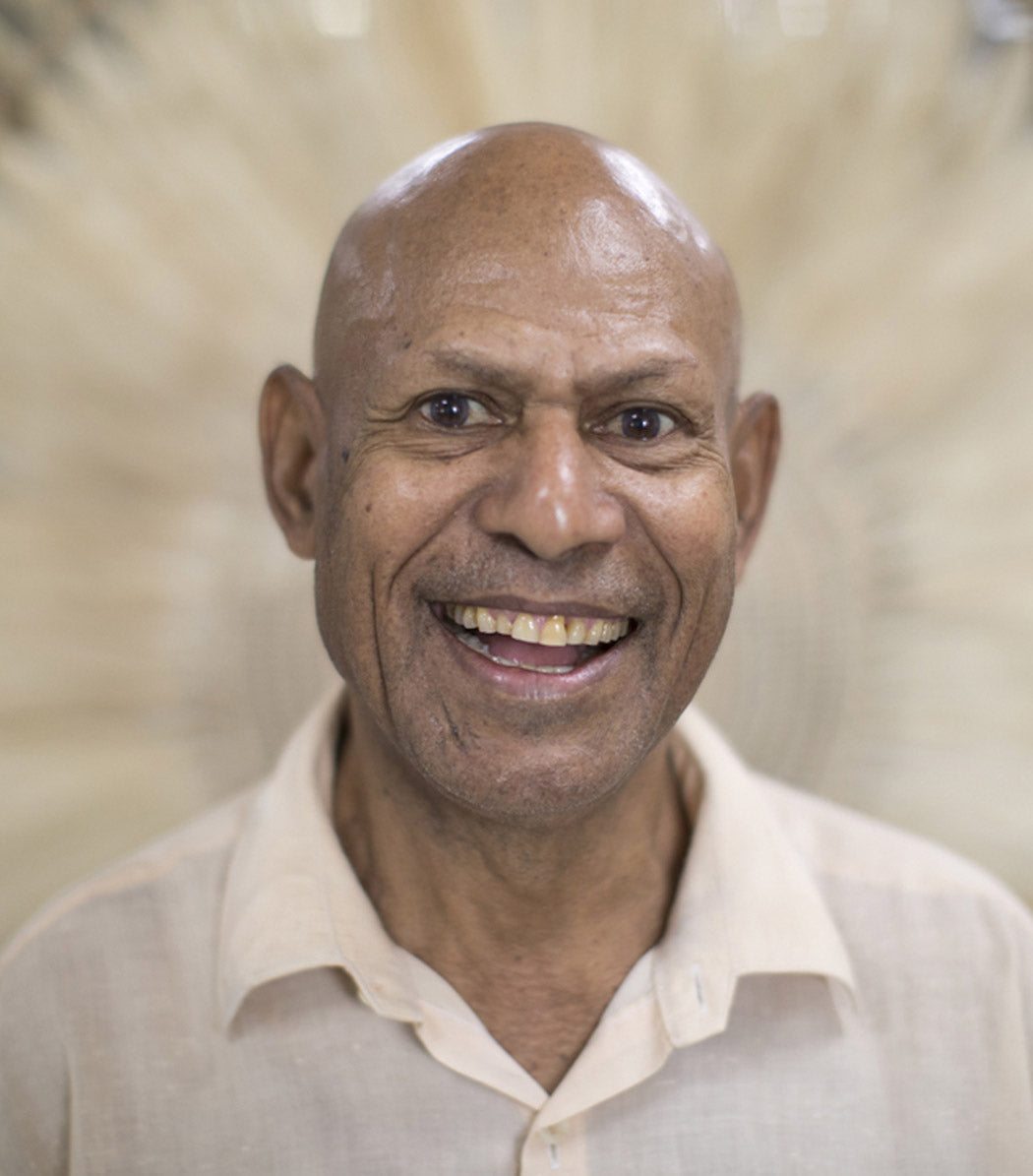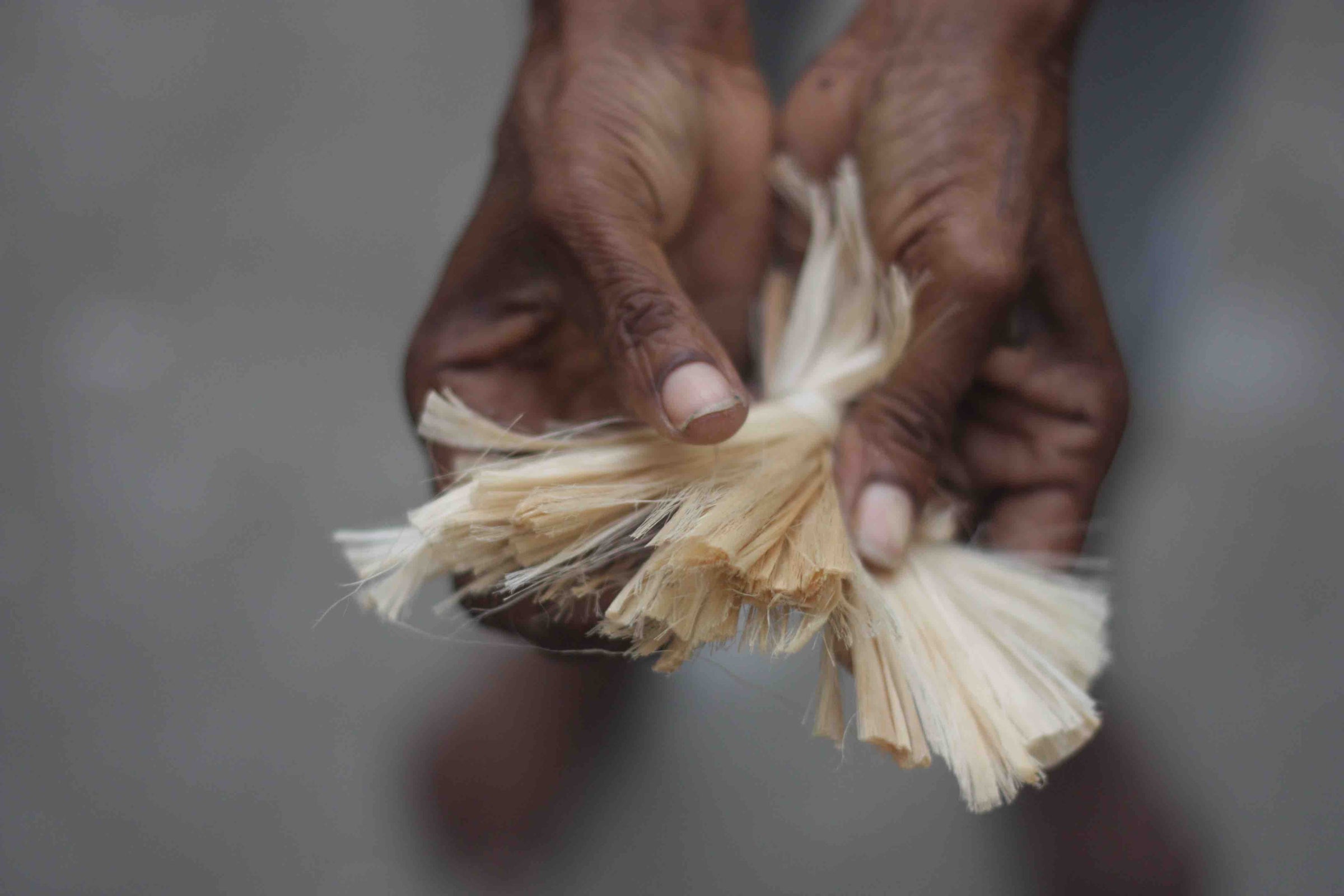Maureen’s mother is from Chimbu and her father is from Kairuku, Central Province and she was born in Goroka. When she was a child, Maureen began to copy her mother and Bubu (Grandmother) weaving bilums and made her first bilum when she was only six years old. After moving to Port Moresby and getting her first job, she stopped weaving bilums, but has started weaving and creating again through her job with Bilum & Bilas. Her traditional skills, aptitude and ability have meant she’s progressed to becoming the Bilum & Bilas studio Manager. Her position means she is able to support her four children as the only income earner and she also supports a wider family on her income.
“It’s been great to refresh my weaving and I have regained my interest in my traditional skills. I had put these to one side whilst working in other jobs, but now I feel proud to be weaving again and earning money from this skill I have. Bilum & Bilas is promoting our culture and helping us with designs that will get us better sales and better income.”
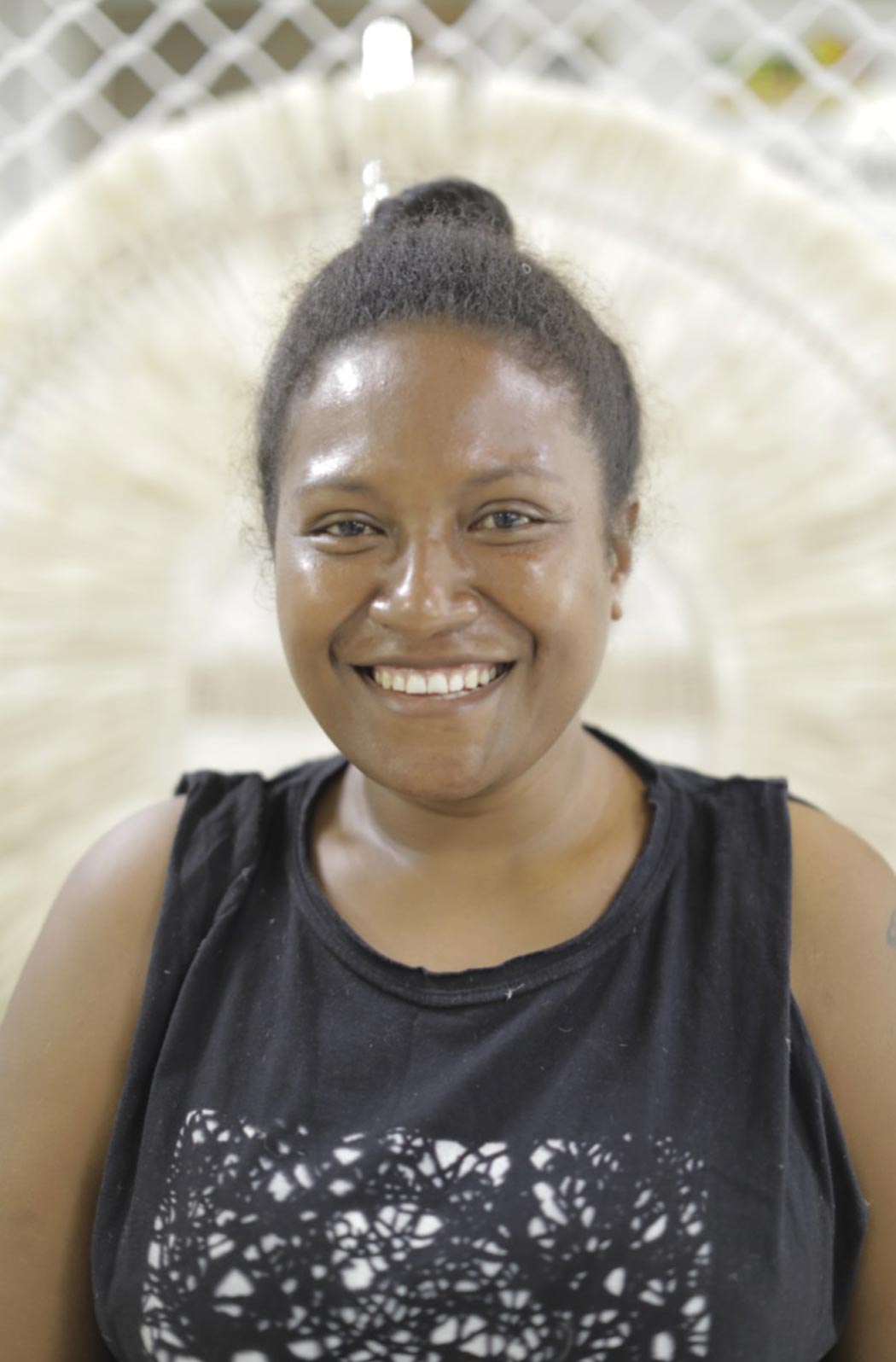
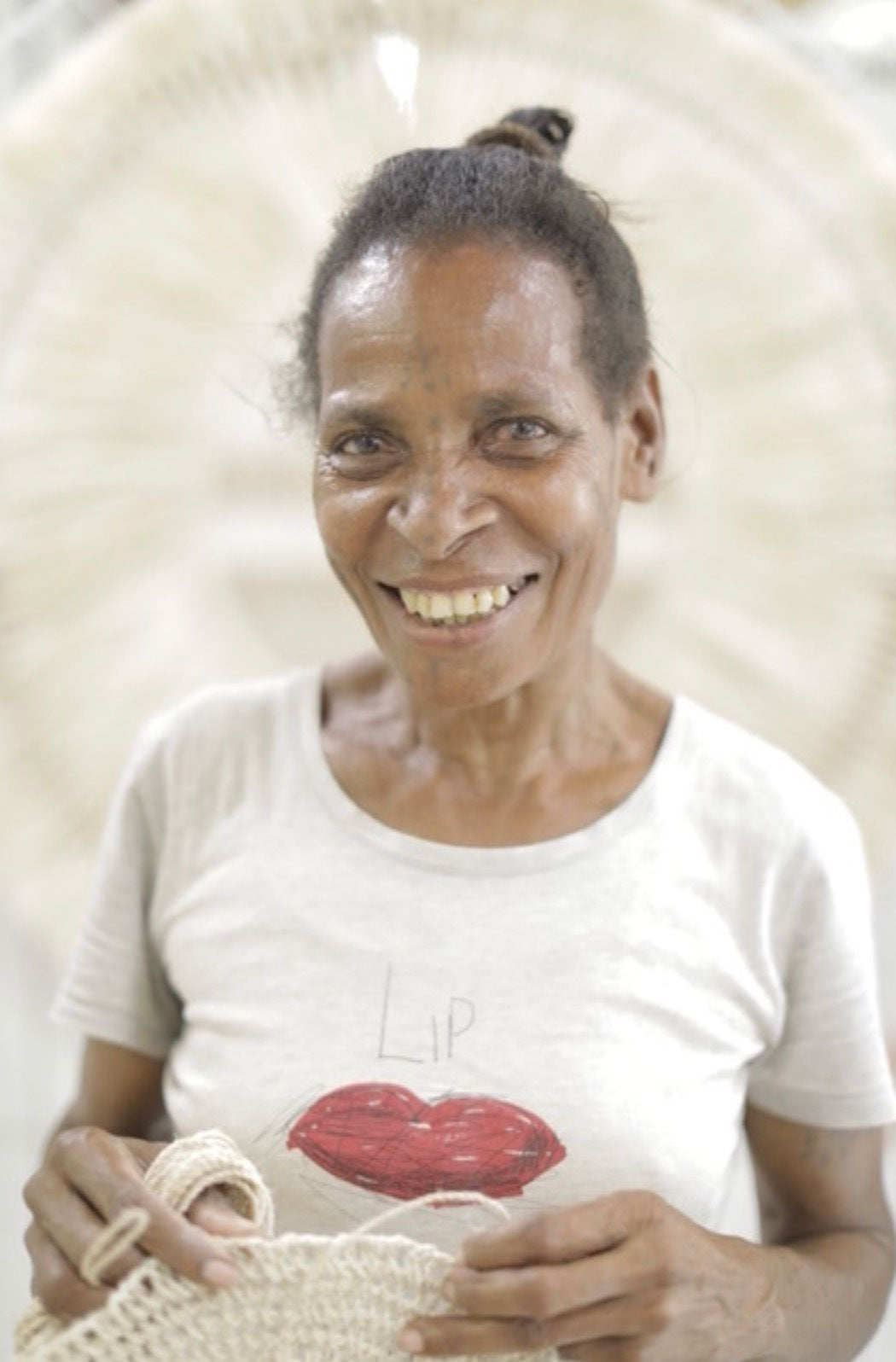
Selina is from Kaningara village in Angoram District, East Sepik Province of Papua New Guinea. Selina now lives in Hohola in Port Moresby and is a single mother to daughter Panina having lost her second daughter in 2018.
Selina lost her mother when she was four years old. From that early age, her father’s sister taught her how to make fibres to weave bilums. Growing up in a village along the Sepik river, Selina made bilums to sell to tourists, but there were very few sales and survival was extremely hard. When she was 22 moved to Port Moresby to find a bigger market for her products. Selina tried to making a living from her crafts, but her circumstances were reflective of many women in Papua New Guinea; sometimes she would make sales and other times she did not. She used to move through a cycle of borrowing and repaying debt depending on her irregular market sales. She did not have savings and existed from hand to mouth.
Things have changed dramatically with her full time job with Bilum & Bilas. She now has a guaranteed income through Bilum & Bilas which means she can avoid sitting for long hours in the dangerous market trying to get a sale. She now has security and stability to provide for her family and can also save money to buy the house she plans to build soon with the money she’s saved.
“I’m very happy working at Bilum & Bilas, as I get always get income and I don’t have to sit in the market. I hope more people will buy these styles and i’ll be able to keep getting work. We now have a safe place to work and holiday and sick pay.”
Betty is from Kaningara village in Angoram District, East Sepik Province of Papua New Guinea. Betty lost her mother when she was seven years old. She moved to Port Moresby with her first husband and was later widowed with two small children. When she remarried she had another child and bought some ground at Hohola where she now lives and supports a large family.
Betty learnt bilum weaving from her Aunty and has always woven bilums around her other responsibilities, to earn extra money to make ends meet.
Betty also sells bilums from her community through Bilum & Bilas and the steady and reliable income stream means that bilum weavers can make additional money to pay school fees and buy food whilst also being at home and taking care of children and elders.
“I have many family members to support and before my job at Bilum & Bilas I had been out of work for some time. Working with Bilum & Bilas gives me good money that I didn’t have. I like being able to use the skills my aunt taught me to earn money and work in a good place.”
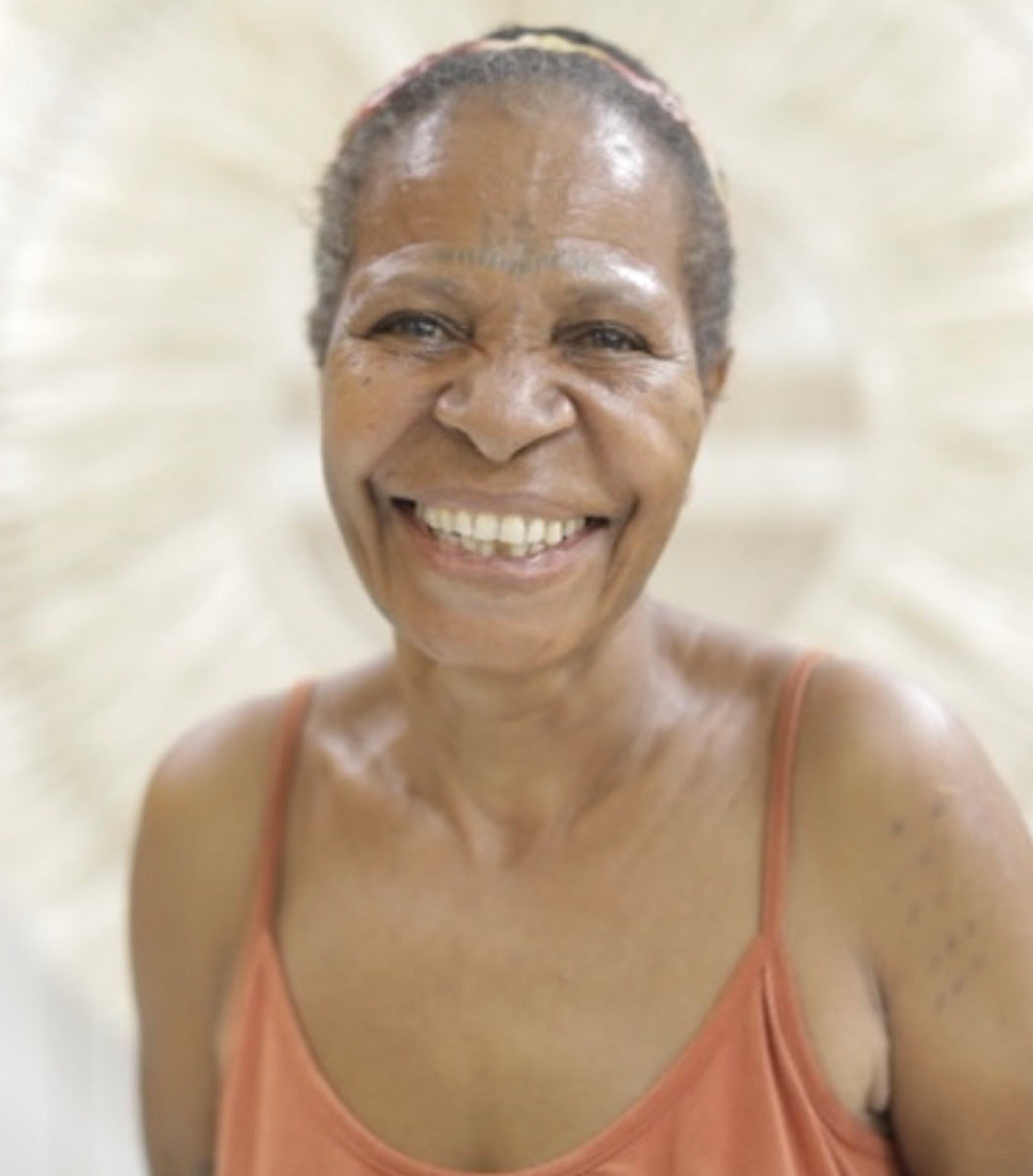
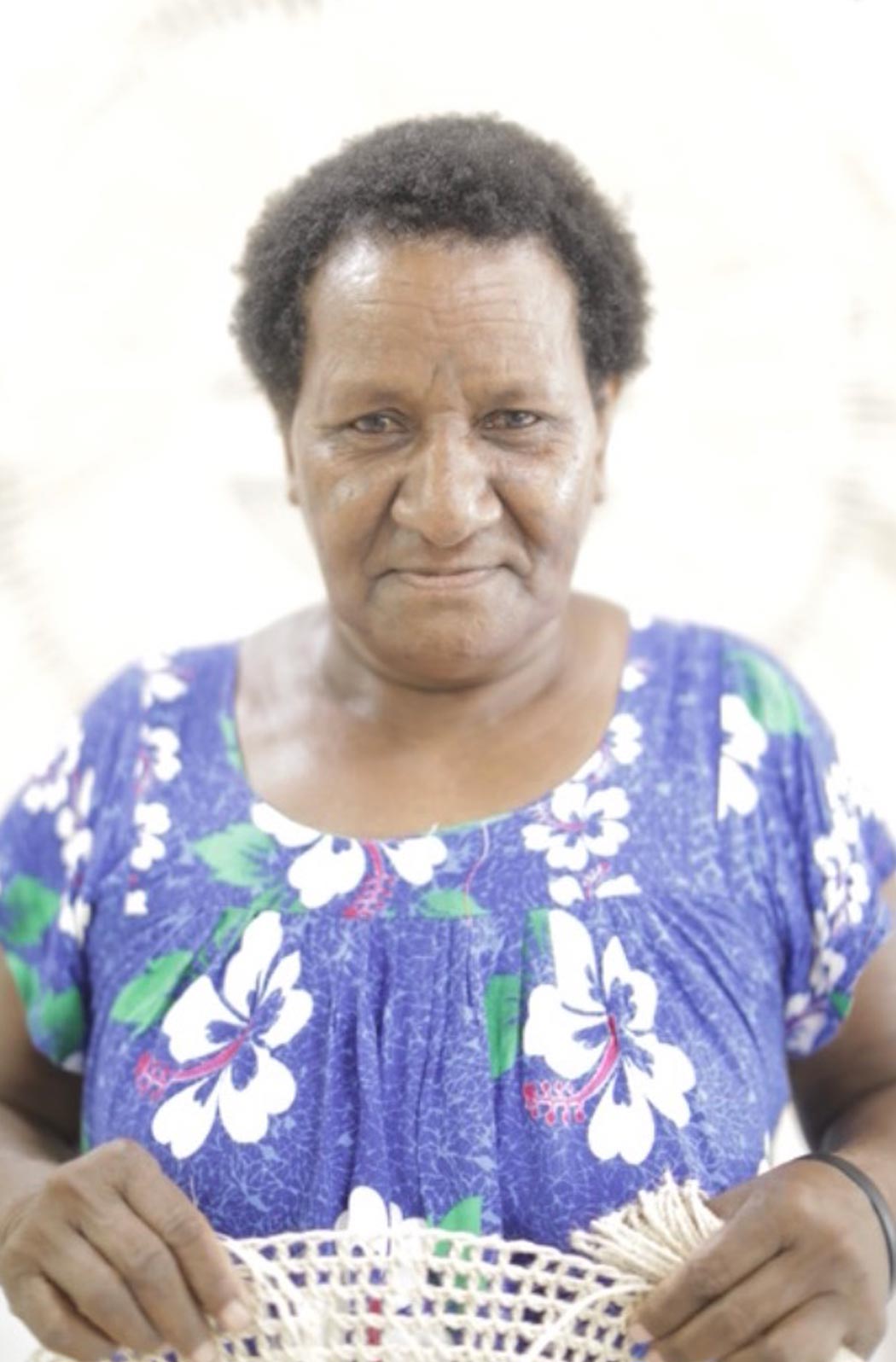
Bibiana is originally from Kaningara Village, East Sepik Province and has two sons whom she raised as a single mother. Bibiana learnt how to weave and make handicrafts from elder village women. Bibiana wasn’t able to get any support from her husband, so always tried to earn money to support herself and her children through her crafts. Unfortunately, for many artisans, the income from sales is very minimal and the little she made was spent on basic needs and wasn’t enough to send her children to high school. Many of the days Bibiana used to spend in the craft markets in Port Moresby, she would go home empty handed, some days were better, but there was no guarantee when those good sales would come.
Now she can sell bilums through Bilum & Bilas she knows she can rely on regular sales and support her family.
“I’m glad to be part of the Bilum & Bilas team because I don’t end up with nothing when I comes in to work like I do at the markets, I always get paid for my work and it helps me support my Grandchildren who need me. Also now with the Covid-19 things have gone from bad to worse for market sellers, so I am very lucky to work at Bilum & Bilas.”
Toru is the Jeweller at Bilum & Bilas. He comes from Kerema, Gulf Province of Papua New Guinea and joins the team with over 40 years experience of handcrafting jewellery. Toru started making jewelry after leaving school at 14 years old and was trained up by one of the few established jewellers existing in PNG at the time. Over the decades Toru’s creativity and skill has developed into the incredible craftsmanship it is today. Bilum & Bilas is lucky to have him on the team and his expertises allows our designs to know know bounds.
“In over 40 years working in different companies as a jeweler using precious metals such and different gem stones, I have rarely worked with traditional natural Papua New Guinean materials. I have found it very different and very interesting working with Bilum & Bilas and making jewelry with traditional woven fibers because its is so unique.”
